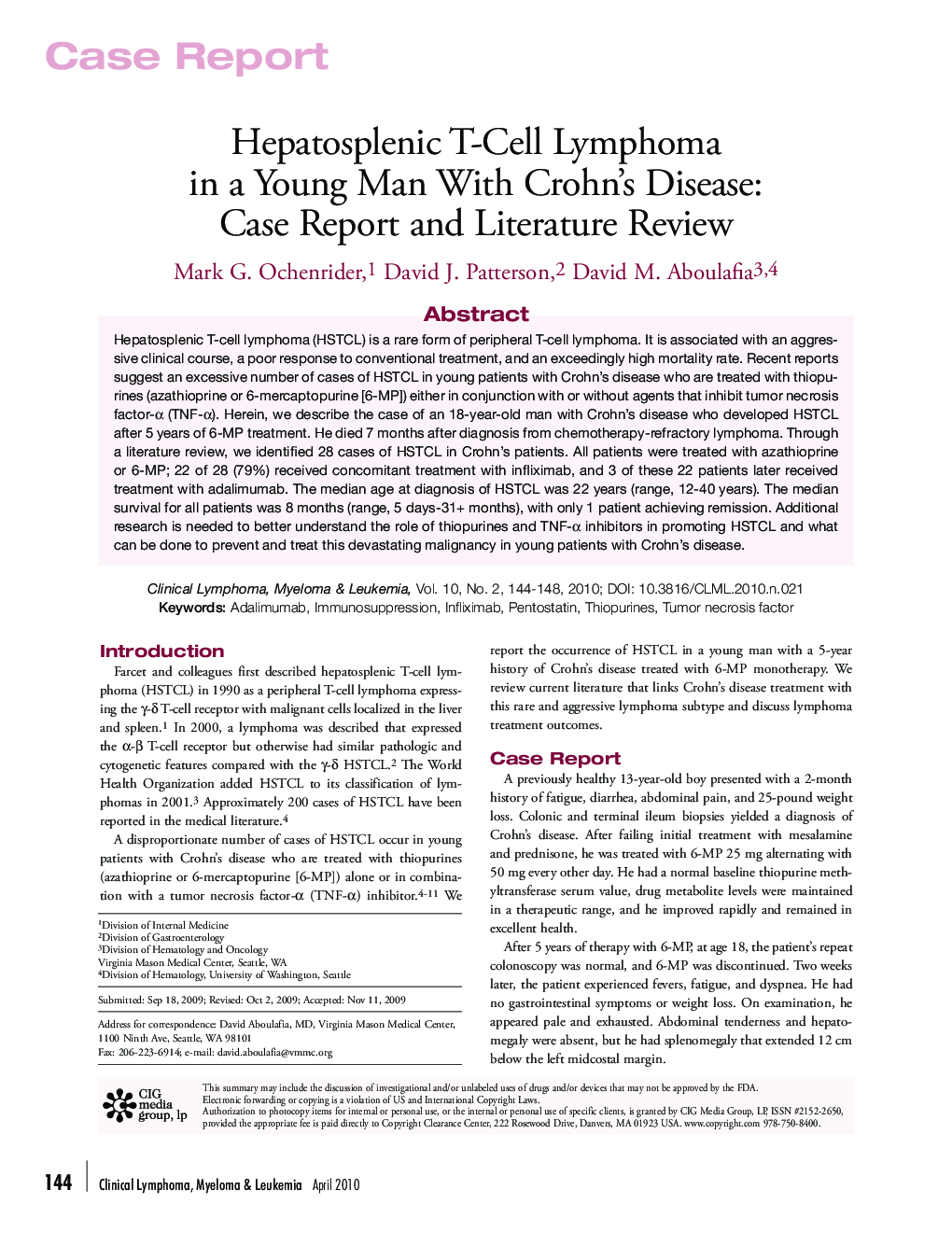| Article ID | Journal | Published Year | Pages | File Type |
|---|---|---|---|---|
| 2755423 | Clinical Lymphoma Myeloma and Leukemia | 2010 | 5 Pages |
Hepatosplenic T-cell lymphoma (HSTCL) is a rare form of peripheral T-cell lymphoma. It is associated with an aggressive clinical course, a poor response to conventional treatment, and an exceedingly high mortality rate. Recent reports suggest an excessive number of cases of HSTCL in young patients with Crohn's disease who are treated with thiopurines (azathioprine or 6-mercaptopurine [6-MP]) either in conjunction with or without agents that inhibit tumor necrosis factor-α (TNF-α). Herein, we describe the case of an 18-year-old man with Crohn's disease who developed HSTCL after 5 years of 6-MP treatment. He died 7 months after diagnosis from chemotherapy-refractory lymphoma. Through a literature review, we identified 28 cases of HSTCL in Crohn's patients. All patients were treated with azathioprine or 6-MP; 22 of 28 (79%) received concomitant treatment with infliximab, and 3 of these 22 patients later received treatment with adalimumab. The median age at diagnosis of HSTCL was 22 years (range, 12-40 years). The median survival for all patients was 8 months (range, 5 days-31+ months), with only 1 patient achieving remission. Additional research is needed to better understand the role of thiopurines and TNF-α inhibitors in promoting HSTCL and what can be done to prevent and treat this devastating malignancy in young patients with Crohn's disease.
